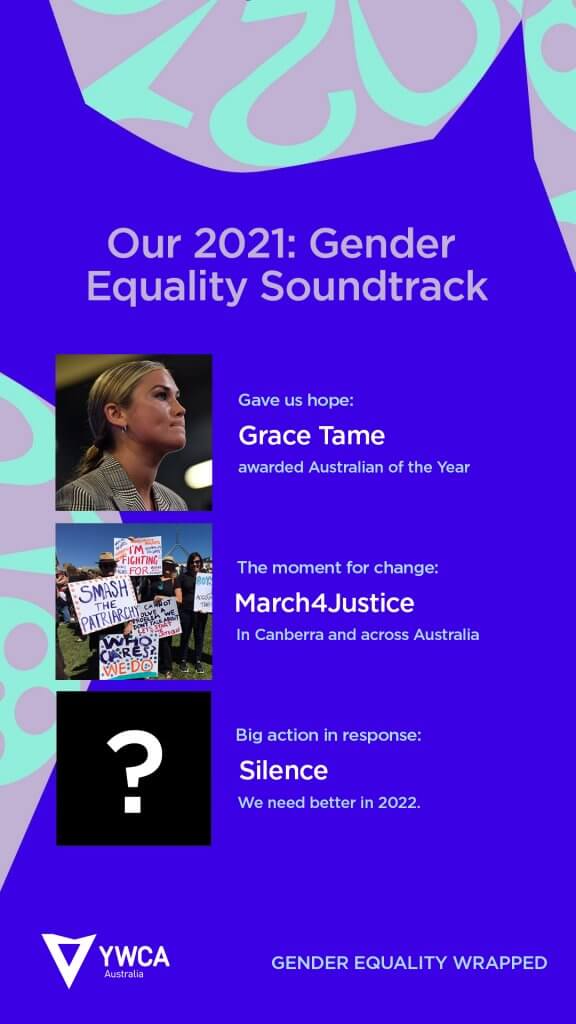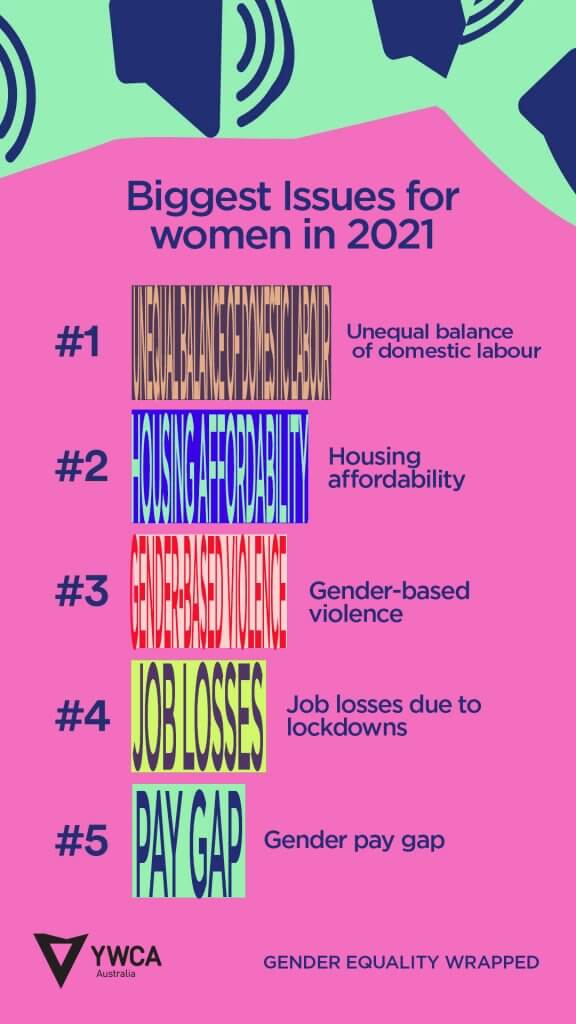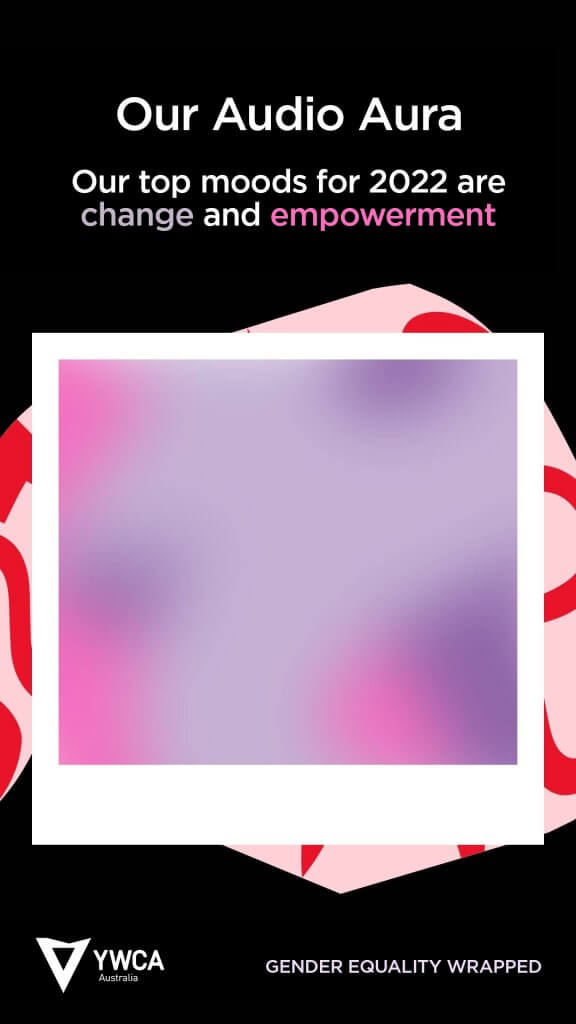As we come to the end of 2021, it seems everyone is reflecting on their year that was. But if we were to take a leaf out of Spotify’s book and look at Gender Equality Wrapped, there’s far more one-hit-wonders and less meaningful change than we’d like to see.
We turned up the volume for change
The year began with a powerful moment in the struggle to eliminate violence against women. Grace Tame was named Australian of the Year, after recounting her own story of child sexual abuse and campaigning tirelessly within the space to ‘Let her speak’. Chanel Contos exposed the real-world misogyny and culture of sexual abuse upheld at some of Sydney’s elite boys’ private schools. And Brittany Higgins, former Liberal staffer, came forward to publicly share that she was raped by a colleague inside Parliament House. People gathered across Australia’s capital cities to protest sexual violence, gender abuse, and misogyny at March4Justice, there was a sense that we were on the precipice of something big.

And yet, we heard the same old song
March4Justice, all the talk of positive action and whispers of a national plan to end women’s economic insecurity, then… nothing.
The Government hosted a Women’s Safety Summit that did little to begin to move the dial on gender-based violence in Australia. 43 of the 55 recommendations in Kate Jenkin’s Respect@Work Report were rejected by the Federal Parliament, despite the Prime Minister calling the report a ‘game-changer’ in the wake of March4Justice. Let’s also not forget about the dance with the Religious Discrimination Bill – a Bill that will override existing protections for women and leave them open to greater discrimination in employment, education, and the provision of goods and services.
Across the country the harsh reality for women continued to be laid bare through the second wave of the pandemic with women shouldering more of the job losses, taking on more of the unpaid care work (despite men being home in greater numbers than ever before) and being overrepresented in the industries – hospitality, retail, the arts – most impacted.
As the end of the year approaches, it feels like we’re stuck on repeat. Misogyny and sexism in parliament is once again in the news – Kate Jenkin’s report has revealed 33 per cent of people in parliamentary workplaces have experienced some form of sexual harassment. One of those interviewed for the report put it best, “This is Parliament. It should set the standard for workplace culture, not the floor of what culture should be.”

It’s time our leaders changed their tune.
We want a different tune

For far too long the only test applied to all solutions and decision-making by our leaders has been how will this affect a white, cis, middle-income man. The impacts on women, particularly those affected by multiple drivers of oppression have been missing from the conversation, policies and decision making.
With a federal election coming in 2022, we have an opportunity to only elect leaders who’ll be guided by broadening the test so it includes the question “how will this affect women in all their diversity?”, who will centre the voices of young women and women as they drive to achieve gender equality in Australia, knowing this will improve all policy-making and our futures.
Young women and women must not be left behind. If we change the test we’ll begin to see bold action for gender equality. And that’s music to our ears.




